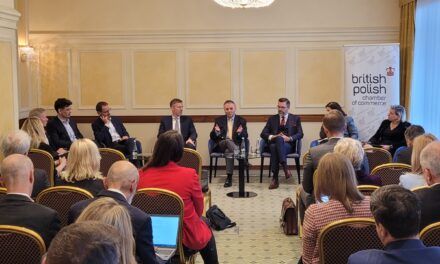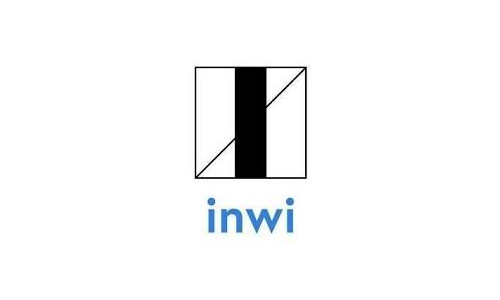Conducting business activity within digital economy is subject to many specific regulations such as data protection or consumer protection. The necessity to adjust legal regulations to a dynamically changing business environment has also been observed in the tax world.
Currently rules regarding the division of tax rights of multinationals firms doing business between different countries were designed many years ago, before the internet, and are becoming increasingly inappropriate considering the way many activities are conducted today. Covid-19 proved that it isn’t necessary to be present in person at work, or even to live in the same country as the employer, or to visit the doctor personally, or even to see real estate with your own eyes before buying it.
The value of some huge online businesses is often created not by the providers but by the users. This concerns in particular social media and marketplace websites where consumer reviews make them attractive and reliable, drawing the attention of clients and advertisers. And yet the country in which users are creating the value for the business does not have the right to tax the income generated thanks to them, unless the entity has a presence in that country thereby creating taxing rights based on current nexus rules. And generally, according to these rules, the company may be taxed in a given country provided that it is tax-resident in that country or has a permanent establishment there. Having users or clients or advertisers in given country does not necessitate the creation of a permanent establishment under classic rules. Therefore, it became necessary to provide a solution allowing so-called market jurisdictions to tax an appropriate part of the global businesses profits.
Prospective changes in international tax environment
Work related to the tax challenges arising from a digitalising economy began at least in 2013 when the BEPS Action plan was published by the OECD. Action 1 concerned taxation in digitalising economy and consisted of several different ideas for new rules of taxation. Over the subsequent years, ideas of how to deal with the problem of inaccuracy of current rules have evolved – from the idea of additionally taxing entities in the digital economy, to a global minimum tax.
In October 2021, a statement made by over 130 countries was published on a new framework for reforming international tax law, stemming from the need to adapt key principles of the law to today’s economic realities, so that multinational corporations pay tax in those countries from which they actually earn income. What is important the solution is not limited to digital or digitalized economy but in practice it will also affect other largest businesses.
The proposed solution is based on two pillars.
The first pillar is a revolution in transfer pricing. The new rules will apply to corporations with the highest global revenues – above €20 billion and with profitability above 10%. They provide for allocation of a part of income (Amount A) to those countries, from which the corporation generates a minimum €1m of revenue, regardless of physical presence. The allocation of revenues to jurisdictions will be based on where the goods or services are used or consumed.
The draft also includes a mechanism to eliminate double taxation, as well as mechanisms to prevent and resolve disputes, so as to provide corporations affected by the rules with possible certainty and security. From this perspective, it is also necessary to coordinate the application of the first pillar with the digital services tax already in force in some countries (these unilateral solutions are to be cancelled and replaced by the OECD deal).
The implementation of the solution into internal legal systems is to be done through a multilateral international agreement (multilateral instrument), which was supposed to be become applicable from 2023.
The second pillar provides for the introduction of a so-called global minimum tax in order to eliminate competition between countries in the area of income tax. The minimum tax rate would be 15% in principle and would apply to multinational corporations with revenues in excess of €750m, but countries could also apply it to lower revenue groups headquartered in their territory.
The second pillar would be based on GloBE (Global anti-Base Erosion rules), and would consist of:
- Income Inclusion Rule (IIR), which imposes an additional tax (top-up tax) on a central company due to the low taxation of its subsidiaries
- Undertaxed payment rule (UTPR), which would prohibit deductibility for payments that are under-taxed.
Additionally, the subject-to-tax rule would allow the source state to impose a withholding tax on payments to related parties that would be taxed below the minimum rate.
Under the GloBE rules, the top-up tax would be calculated with respect to income that is not effectively taxed at the jurisdiction’s level. A so-called “substance carve-out” should allow businesses to decrease their tax base with some percentage of the value of material assets and of employment costs. There are, however, no such solutions for intangible assets.
Model rules governing the above ideas were published in December 2021; the new rules were planned to begin to be applicable in 2023.
At the same time, at the EU level, work started to implement Pillar Two in the same way across member states. The project of an EU Directive was presented in December 2021. Looking at this from a high-level perspective, the rules provided for in the Directive proposal and in BEPS 2.0 (GloBE) are similar (with some variations). There is, however, an option of taxation on lower levels of group’s structures under the domestic top-up income tax (if it fulfils certain conditions). The country of ultimate parent entity must give a credit for the domestic top-up tax when calculating the income in the given jurisdiction.
In April 2022 when the works within EU were expected to be close to the finish, the Polish veto meant that they have had to be put on hold. The Polish government explaineds that the agreement achieved at OECD level consisted of two pillars and that there is a need for a legal guarantee that both pillars will be implemented. It is estimated that while Pillar One is expected to be beneficial for the countries like Poland, on the other hand, global minimal income tax (Pillar Two) is thought to make the incentives as the IP Box less attractive from global group perspective.
Based on media reports, Poland decided to drop its reservations in recent days, however, Hungary expressed its last minute objections.
We also need to remember that in Poland we already have a minimum income tax – it was implemented within so-called Polish Deal solution. Implementation of the directive regulating Pillar Two would require changing these current CIT regulations.
To summarise, the international tax environment is just about to be dramatically changed. At the beginning, the changes will just affect the larges multinationals, but the threshold for global minimum tax is lower – €750m. The new group transfer pricing solutions should be worked out before the new rules enter into force. Preparation for Pillar Two, in particular calculation of additional tax, should also start as soon as possible.




























